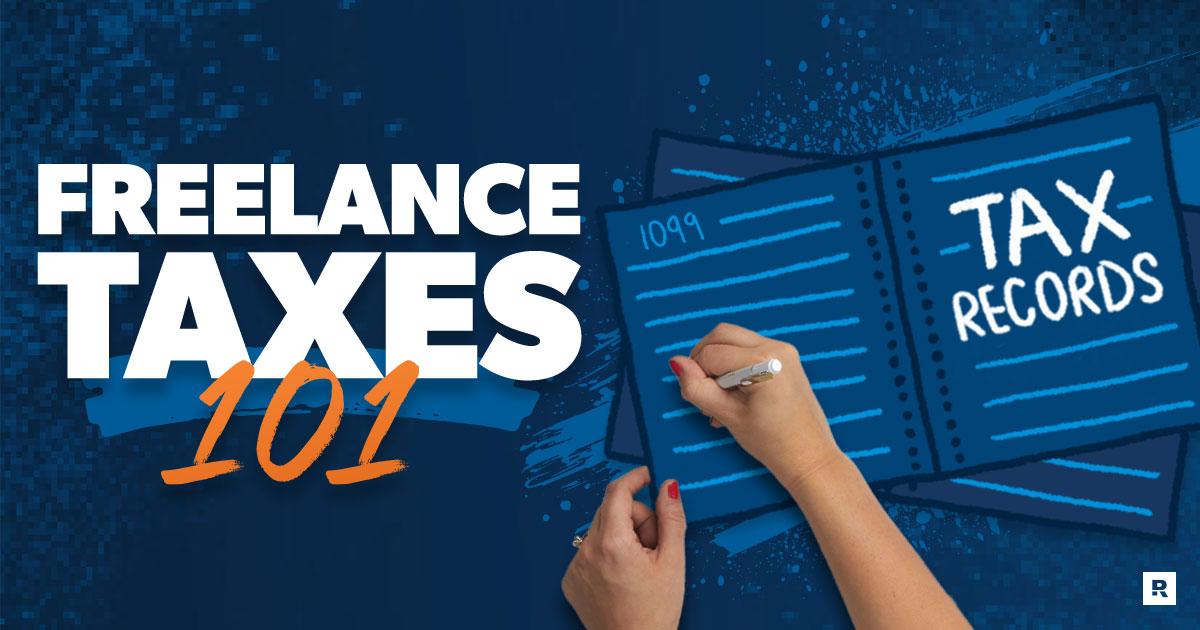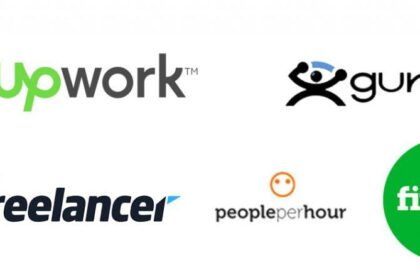In a world where the freedom of freelancing dances hand in hand with the complexities of self-employment, navigating the maze of taxes and accounting can feel like a daunting endeavor. For many independent professionals, the exhilaration of working for oneself is often tempered by the shadow of financial responsibilities that loom just beyond the horizon. With each project that brings creativity and passion to life, there lies an intricate web of financial obligations waiting to be unraveled. This article aims to illuminate the path through the labyrinth of freelance taxes and accounting, equipping you with essential insights to help you demystify the process. Whether you’re a seasoned freelancer or just beginning to dip your toes into the gig economy, understanding the nuances of tax regulations and robust accounting practices will empower you to not only thrive in your career but also keep your financial foundation secure. Join us as we explore strategies, considerations, and best practices to ensure your freelance journey is as rewarding financially as it is creatively.
Freelance Writing
Venturing into means embracing a lifestyle full of creative freedom, but it also comes with the responsibility of managing your finances effectively. Keeping track of your income and expenses is crucial. Consider adopting these practices to streamline your accounting tasks:
- Utilize accounting software: Programs like QuickBooks or FreshBooks can simplify income tracking and expense categorization.
- Maintain a dedicated business account: This helps separate personal and professional finances, making tax season far less daunting.
- Stay organized with receipts: Use digital tools or apps to keep your receipts accessible and categorized.
- Schedule regular check-ins: Monthly reviews of your financial status can help you stay on top of your freelance earnings.
While tax laws may vary, some essential deductions are commonly available for freelancers. Understanding these can lead to significant savings when filing your taxes. Below is a snapshot of potential deductions:
| Deduction Category | Description |
|---|---|
| Home Office | Portion of your rent/mortgage attributed to your workspace. |
| Supplies | Pens, paper, and any writing tools or materials you purchase. |
| Software Subscriptions | Costs for writing software and productivity applications. |
| Professional Development | Expenses for courses, workshops, or seminars to improve your skills. |
Freelancing Platforms
When diving into the world of freelancing, choosing the right platform is crucial for maximizing your income potential and simplifying your tax reporting. Popular such as Upwork, Fiverr, and Freelancer offer unique features tailored to different types of freelance work. They provide integrated payment systems that help you track your earnings, but it’s essential to be aware of the commission fees they charge. Understanding each platform’s fee structure can assist you in managing your finances more effectively:
| Platform | Fee Structure | Payment Frequency |
|---|---|---|
| Upwork | 20% for the first $500, 10% for $500.01-$10,000, 5% above $10,000 | Weekly |
| Fiverr | 20% on all transactions | Upon Order Completion |
| Freelancer | 10% on fixed-price jobs, 20% on inbound payments | Weekly |
Balancing multiple platforms can lead to a chaotic income stream, making it challenging to keep track of earnings and deductions. Utilizing accounting tools such as QuickBooks or FreshBooks can provide clarity. These tools allow you to categorize expenses, invoice clients, and keep all financial data organized. Many offer features designed specifically for freelancers, such as:
- Expense tracking to log business-related purchases easily.
- Time tracking to monitor how billable hours are spent.
- Tax preparation tools that simplify filing your returns.

Freelance Graphic Design
Working as a er brings not only creative freedom but also a unique set of challenges when it comes to managing your finances. Understanding the tax implications of your income is crucial for long-term success. In addition to keeping track of income from various projects, you need to account for expenses related to your workspace, software licenses, and marketing strategies. Here are some important points to consider:
- Track Your Income: Use accounting software or a simple spreadsheet to keep an accurate record of payments received from clients.
- Identify Deductible Expenses: Document all expenses categorized under business activities—like design tools, advertising costs, and professional development.
- Understand Tax Obligations: Familiarize yourself with local tax rates and requirements for freelancers, including quarterly estimated taxes if necessary.
Moreover, effective financial planning can help you avoid the stress of last-minute tax filings. Setting aside a percentage of your monthly income specifically for taxes will alleviate the burden when tax season rolls around. It can be beneficial to consult with a tax professional who understands the nuances of freelance work. Here’s a simple overview of key financial practices:
| Practice | Description |
|---|---|
| Monthly Reviews | Regularly assess income and expenses to maintain a clear financial picture. |
| Savings for Tax | Allocate a set percentage of earnings for tax payments to avoid surprises. |
| Professional Help | Engage an accountant specializing in freelance work for tailored advice. |

Freelance Web Development
Freelance web developers often find themselves juggling various tasks, and managing finances can become an overwhelming aspect of their business. Understanding the intricacies of freelance taxes is crucial, as it can significantly impact profitability. To start on the right foot, keep careful records of your income and expenses, use accounting software that is tailored for freelancers, and ensure you categorize your transactions correctly. Consider allocating funds for taxes upfront to eliminate last-minute scrambles. Remember to include the following when calculating your tax obligations:
- Income from projects – All payments received for your web development services.
- Business expenses – Costs for software, hosting, and domain registrations.
- Equipment costs – Depreciation on hardware such as laptops and design tools.
Additionally, freelancer tax deductions vary by jurisdiction, but many web developers overlook potential savings by failing to track their work-at-home expenses. Deducting a portion of your utility bills, internet costs, and even office supplies can lead to significant savings. Utilize the table below to identify some common deductible expenses that you might not have considered:
| Deductible Expense | Details |
|---|---|
| Home Office Supplies | Pens, paper, and printer ink used for client work. |
| Software Subscriptions | Costs for tools like Adobe Creative Cloud or project management apps. |
| Business Meals | 50% of dining expenses with clients or during networking. |

Freelance Marketing Consultant
As a , understanding the intricacies of taxes and accounting can feel overwhelming. Without a traditional employer to handle your payroll and taxes, it falls squarely on your shoulders to manage these essential aspects of your business. To navigate this maze, consider creating a structured approach that includes:
- Organizing Financial Records: Keep track of all invoices, receipts, and expenses.
- Estimating Quarterly Taxes: Set aside a portion of your income to cover your tax obligations.
- Hiring a Professional: A tax advisor can help you optimize deductions.
- Understanding Deductions: Familiarize yourself with what expenses can be deducted.
To ensure you stay on top of your freelance accounting, consider implementing a simple but effective bookkeeping system. Utilize tools and software designed for freelancers that can help streamline your invoicing and expense tracking. Here’s a handy table to compare some popular options:
| Software | Features | Price |
|---|---|---|
| QuickBooks | Invoicing, Expense Tracking, Tax Estimation | $25/month |
| FreshBooks | Client Management, Time Tracking, Reporting | $15/month |
| Xero | Bank Reconciliation, Invoicing, Reporting | $12/month |
Freelancing for Beginners
As a beginner in the freelance world, understanding your tax obligations can feel overwhelming. It’s crucial to familiarize yourself with the key terms and responsibilities that come with self-employment. Start by keeping detailed records of your income and expenses. This will not only help you identify eligible deductions but also prepare you for tax season. Here are some essential items to track:
- Invoices issued for each project
- Receipts for business-related purchases
- Bank statements to reconcile your income
- Log of mileage for travel related to work
Additionally, consider setting aside a percentage of each payment you receive for taxes. A common rule of thumb is to reserve 25-30% of your income. It’s also wise to consult a professional accountant who specializes in freelance work to help you navigate deductions you may qualify for, such as home office expenses and software subscriptions. Incorporating these practices into your routine will simplify your financial processes and reduce anxiety around tax filings.

Freelance Project Management
As a freelancer, your ability to manage projects effectively can significantly influence your income and efficiency. To stay ahead in the competitive market, consider implementing a structured approach that encompasses planning, execution, and monitoring. Here are some key practices to enhance your project management skills:
- Define Clear Objectives: Establish specific goals for each project to maintain focus and ensure alignment.
- Create a Timeline: Use Gantt charts or simple schedules to visualize project milestones and deadlines.
- Utilize Project Management Tools: Platforms like Trello or Asana can help you organize tasks and collaborate seamlessly.
- Regularly Review Progress: Schedule check-ins to assess what’s working, what’s not, and make necessary adjustments.
Moreover, understanding the financial aspects of project management is essential for freelancers. You may want to consider the following budgeting tips, which can help you maintain a healthy balance sheet:
| Expense Category | Estimated Percentage of Income |
|---|---|
| Taxes | 20-30% |
| Operating Costs | 10-15% |
| Marketing | 5-10% |
| Professional Development | 5% |
By staying organized and maintaining a keen eye on your finances, you can streamline your workflows and ensure your freelance career remains both fruitful and sustainable.

Remote Freelance Jobs
As a freelancer working remotely, it’s crucial to understand the landscape of taxes and accounting related to your income. Unlike traditional employment, where taxes are often deducted at the source, freelancers must take the initiative to manage their own tax obligations. This includes tracking income and expenses, as well as understanding the various tax deductions available. Here are some key areas to focus on:
- Tax Deductions: Familiarize yourself with eligible deductions, such as home office expenses, software subscriptions, and educational resources.
- Tax Quotes: Seek professional tax advice to estimate your quarterly payments accurately.
- Record Keeping: Maintain organized records of invoices, receipts, and expenses using digital tools or accounting software.
When it comes to managing finances, a structured approach can set you on the path to success. Using a table to track income and expenses can help you visualize your financial situation better and prepare appropriately for tax season. Here’s a simple framework:
| Date | Income | Expenses | Net Profit |
|---|---|---|---|
| 01/2023 | $3,000 | $500 | $2,500 |
| 02/2023 | $4,000 | $700 | $3,300 |

Freelance Photography
For freelance photographers, the creative process doesn’t end when the camera clicks; it carries on into the realm of finances. Managing your earnings, expenses, and tax obligations can feel like a daunting task, but it’s crucial for maintaining both your art and your livelihood. Understanding the fundamental aspects of freelance accounting is key to ensuring you don’t miss out on potential deductions. Here’s what you should keep in mind:
- Track Every Expense: From camera equipment to software subscriptions, every purchase can potentially be deducted.
- Set Aside for Taxes: Allocate a percentage of your income for taxes to avoid any last-minute financial stress.
- Invoicing: Use professional invoices not just to get paid, but to track your income accurately.
Creating a simple yet effective financial structure is vital for your freelance career. Utilizing tools such as spreadsheets or accounting software can streamline this process. The table below showcases essential elements needed in your financial toolkit:
| Tool | Purpose |
|---|---|
| Accounting Software | Simplifies tracking expenses and income, generates reports. |
| Budgeting Apps | Helps plan your finances and monitor spending habits. |
| Cloud Storage | Securely stores digital receipts and invoices for easy access. |
Freelance Video Editing
As a freelance video editor, you’re not just the creative force behind stunning visuals; you’re also managing your own business. This means keeping track of income, expenses, and tax obligations, which can be daunting amidst project deadlines and client demands. To simplify this intricate web of accounting, it’s essential to adopt a systematic approach. Consider utilizing software designed for freelancers, like QuickBooks or FreshBooks, which can streamline invoicing, track expenses, and generate financial reports. Additionally, maintaining a __project ledger__ can help you keep tabs on your earnings and expenditures categorized by client or project type.
When it comes to tax season, understanding deductible expenses can significantly reduce your taxable income. Here are some common deductions that you should be aware of:
- Equipment Costs: Cameras, computers, and editing software.
- Home Office Expenses: A portion of your rent or mortgage.
- Subscriptions: Any services related to video editing like Adobe Creative Cloud.
- Marketing Expenses: Website hosting and advertising.
To give you a clearer picture, here’s a quick overview of how these deductions can impact your overall taxable income:
| Expense Category | Estimated Annual Deduction |
|---|---|
| Equipment Costs | $2,000 |
| Home Office Expenses | $1,500 |
| Subscriptions | $600 |
| Marketing Expenses | $800 |

Freelance Social Media Manager
As a , managing your finances can often feel like a balancing act between creativity and compliance. Understanding your tax obligations and accounting requirements is essential to ensure that your business runs smoothly and legally. Here are some crucial elements to consider:
- Income Tracking: Maintain meticulous records of all revenue streams, whether from client retainers, project-based work, or affiliate marketing.
- Expense Management: Keep track of business-related expenses, including software subscriptions, equipment, and marketing costs.
- Deductions: Familiarize yourself with available deductions, such as home office expenses, mileage, and other operational costs.
- Quarterly Taxes: Estimate and pay your taxes quarterly to avoid penalties and prevent a tax bill shock at year-end.
To simplify tracking and accountability, consider utilizing accounting software specifically designed for freelancers. Many of these platforms offer features tailored to the needs of social media managers, such as:
| Software | Features | Best For |
|---|---|---|
| QuickBooks | Invoice generation, expense tracking, tax calculator | Comprehensive bookkeeping |
| Xero | Collaboration tools, bank syncing, mobile app | Remote team management |
| FreshBooks | Time tracking, seamless invoicing, client portal | Service-based freelancers |

Freelance SEO Expert
As a , managing your taxes and accounting can feel overwhelming, especially when juggling multiple clients and projects. It’s essential to keep meticulous records of your income and expenses to ensure you are fully compliant with tax regulations. Utilizing accounting software tailored for freelancers can simplify this process, allowing you to easily track invoices, payments, and deductions. Key areas to focus on include:
- Income Tracking: Document every payment received from clients, including the date, amount, and service provided.
- Expense Management: Keep receipts and records of business-related expenses such as tools, software, and marketing.
- Client Invoicing: Send professional invoices promptly to maintain cash flow and establish a clear payment history.
Additionally, understanding the different tax obligations that come with freelancing can help you avoid pitfalls. For instance, many freelancers underestimate the importance of setting aside a portion of their earnings for taxes. Consider establishing a dedicated savings account to accumulate funds throughout the year. To provide more clarity, here’s a simple breakdown of potential tax-related items:
| Item | Details |
|---|---|
| Estimated Taxes | Set aside 25-30% of your income for tax savings. |
| Deductions | Explore deductible expenses to reduce taxable income. |
| Professional Help | Consider hiring an accountant for complex situations. |

Freelance Copywriting
can be a rewarding career, but it comes with its own set of financial challenges. As a freelancer, you not only need to focus on crafting compelling content but also navigate the often-overwhelming landscape of taxes and accounting. Understanding your deductions is crucial, as they can significantly reduce your taxable income. Common deductions for copywriters include:
- Home office expenses: If you work from home, a portion of your rent or mortgage, utilities, and internet costs could be deductible.
- Travel expenses: Costs incurred for client meetings or events, including mileage or public transport, can be written off.
- Software subscriptions: Tools like grammar checkers or design applications that aid your work are typically deductible.
Moreover, keeping meticulous records is essential. Utilize accounting software or simple spreadsheets to track your income and expenses regularly. This practice will not only streamline your tax filing process but also help you stay on top of your financial health throughout the year. Consider the following best practices for efficient financial management:
| Practice | Description |
|---|---|
| Regular invoicing | Send invoices promptly to maintain cash flow and get paid faster. |
| Track time spent | Use time tracking tools to ensure accurate billing and project management. |
| Establish a budget | Plan your finances to allocate funds for taxes and unexpected expenses. |

Freelance Business Tips
Understanding your tax obligations is a crucial part of running a successful freelance business. Keeping meticulous records is essential, as it helps you track income and expenses, making tax season far less daunting. Consider using accounting software like QuickBooks or FreshBooks, which can simplify this process significantly. Remember to categorize your expenses correctly to maximize your deductions. As a freelancer, you may be able to deduct a variety of expenses, including:
- Home Office Supplies: From desks to stationery, keep receipts!
- Professional Development: Courses and webinars can bolster your skills.
- Travel Expenses: If you travel for work, don’t forget to document what you spend.
Understanding quarterly estimated taxes can also save you from unpleasant surprises at the end of the year. Freelancers generally need to make these payments to avoid penalties, and calculating them requires careful forecasting of your income. One approach is to set aside a percentage of each payment you receive—many find 30% a safe estimate. To help you visualize your financial landscape, consider this simple breakdown of common tax brackets and their corresponding rates for freelancers:
| Tax Bracket | Income Range | Tax Rate |
|---|---|---|
| 10% | $0 – $9,875 | 10% |
| 12% | $9,876 – $40,125 | 12% |
| 22% | $40,126 – $85,525 | 22% |
Freelance Rates and Pricing
Determining the right freelance rate is not just about covering your living expenses—it’s also about accounting for taxes and hidden costs that can impact your profitability. Your pricing strategy should encompass several factors, including skill level, industry standards, and project complexity. To ensure that you’re pricing yourself appropriately, consider implementing a tiered structure that reflects your expertise:
- Entry-Level: Projects suited for beginners, typically featuring lower rates.
- Mid-Level: For freelancers with experience and a solid portfolio, commanding competitive rates.
- Expert-Level: Premium pricing for specialized skills or high-demand areas of expertise.
Understanding your worth is crucial, but so is being transparent with your clients about what your rates include. Consider creating a simple table to convey variations in pricing based on project requirements, which can help clients quickly grasp your offerings:
| Service Type | Base Rate | Additional Costs |
|---|---|---|
| Consultation | $50/hr | + $20 for each additional hour |
| Basic Project | $300 | + $100 for complex tasks |
| Ongoing Support | $100/mo | + $30 for additional services |

Building a Freelance Portfolio
Creating a standout portfolio is crucial for any freelancer aiming to attract clients and demonstrate their expertise. Begin by showcasing your best work in an organized manner. Consider including a mix of project types that highlight your versatility, from graphics and design to writing and development. Make sure to use high-quality images or well-formatted documents to present your projects effectively. Essential elements of your portfolio could include:
- Project Descriptions: Briefly explain each project, outlining your role and the tools used.
- Client Testimonials: Incorporate feedback from previous clients to add credibility.
- Case Studies: Provide in-depth analysis of individual projects to illustrate your process and problem-solving skills.
Additionally, ensure your portfolio is easily accessible and user-friendly. Leverage platforms like WordPress for a customizable design, enabling you to align the visual theme with your personal brand. Utilize the following organizational tips when setting up your portfolio:
- Navigation: Create a simple menu structure that allows visitors to browse easily.
- Categories: Differentiate your work into categories to help potential clients quickly find what they need.
- Contact Information: Feature a contact form on your portfolio to encourage inquiries.

Freelance Contract Templates
When starting your freelance journey, one of the essential elements of a successful business is having a solid contract in place. This not only protects your rights but also clearly outlines the expectations of both parties. offer a flexible solution to ensure that you cover all necessary topics when formalizing agreements. Key components to include in your contract are:
- Scope of Work: Define the specific services you will provide.
- Payment Terms: Be clear about rates, payment schedules, and methods.
- Deadlines: Set realistic timelines for project milestones.
- Cancellations/Refunds: Establish conditions for contract termination.
- Intellectual Property: Clarify ownership of the work created.
Utilizing these templates can significantly reduce misunderstandings and disputes, allowing you to focus on your craft. When choosing a template, ensure that it is customizable to fit your unique style and the specific needs of your clients. Below is a quick comparison table of various contract templates available to freelancers:
| Contract Type | Features | Price Range |
|---|---|---|
| Basic Freelance Agreement | General terms, payment, and deadlines | $10 – $25 |
| Service-Specific Contract | Detailed for creative services like design | $25 – $50 |
| Consulting Agreement | Includes confidentiality clauses and IP rights | $30 – $60 |

Freelance Time Management
Effectively managing your time as a freelancer is essential for navigating the complexities of taxes and accounting. With a dynamic work environment and varied client needs, it’s crucial to develop a routine that maximizes productivity while allowing space for meticulous financial organization. Consider implementing a few key strategies:
- Set Clear Goals: Define daily, weekly, and monthly objectives to keep your tasks on track.
- Use Time-Tracking Tools: Leverage apps to monitor billable hours and analyze how effectively you are utilizing your time.
- Schedule Accounting Sessions: Dedicate specific blocks of time each week to review invoices, receipts, and tax obligations.
Utilizing a structured approach to your freelance work not only enhances productivity but also streamlines your accounting practices. Create a simple table to help you categorize income and expenses:
| Category | Description | Amount |
|---|---|---|
| Income | Client Payments | $XXXX |
| Expenses | Software Subscriptions | $XXX |
| Expenses | Office Supplies | $XX |
By organizing your financial data visually, you not only simplify tax time but also maintain a clearer overview of your freelance business. This proactive approach ensures that you are always prepared for quarterly tax payments and can adapt your strategies according to your earnings and expenditures.

Freelance Networking
Building a robust network is crucial for freelancers who want to navigate the complex world of taxes and accounting efficiently. Engaging with fellow freelancers, accountants, and industry professionals can provide you with valuable insights and support. Consider the following avenues to expand your freelance network:
- Join online forums and social media groups focused on freelancing.
- Attend local meetups and industry events.
- Participate in webinars and workshops to enhance your skills.
- Collaborate on projects with other freelancers to share resources.
Utilizing your network not only helps in finding answers to accounting questions but also opens doors to potential clients and referrals. Here’s a quick guide on maintaining and nurturing these connections:
| Strategy | Description |
|---|---|
| Regular Check-ins | Keep in touch with your network through newsletters or casual messages. |
| Value Exchange | Offer insights, resources, or support to help others in your network. |
| Follow-Up | After events, follow up with new contacts to deepen the relationship. |

Freelancing in Tech
Freelancing in the tech sector offers a unique blend of innovation and flexibility, but it also comes with an intricate web of tax obligations and accounting practices. Tech freelancers must stay on top of their finances to navigate this maze successfully. Keeping accurate records is key. Consider implementing these strategies:
- Track expenses meticulously: Use apps like Expensify or QuickBooks to monitor every dollar spent.
- Separate personal and business finances: Open a dedicated business account to simplify transaction management.
- Stay informed on tax laws: Regulations can vary widely by location, so local knowledge is vital.
Understanding deductions available to tech freelancers can significantly impact your overall tax burden. Familiarize yourself with common write-offs to make the most of your earnings. Here’s a concise overview of some potential deductions:
| Deductions | Description |
|---|---|
| Home Office | Portion of your home used exclusively for work. |
| Equipment | Computers, software, and other tools necessary for your projects. |
| Internet and Phone | Business-related communication costs. |
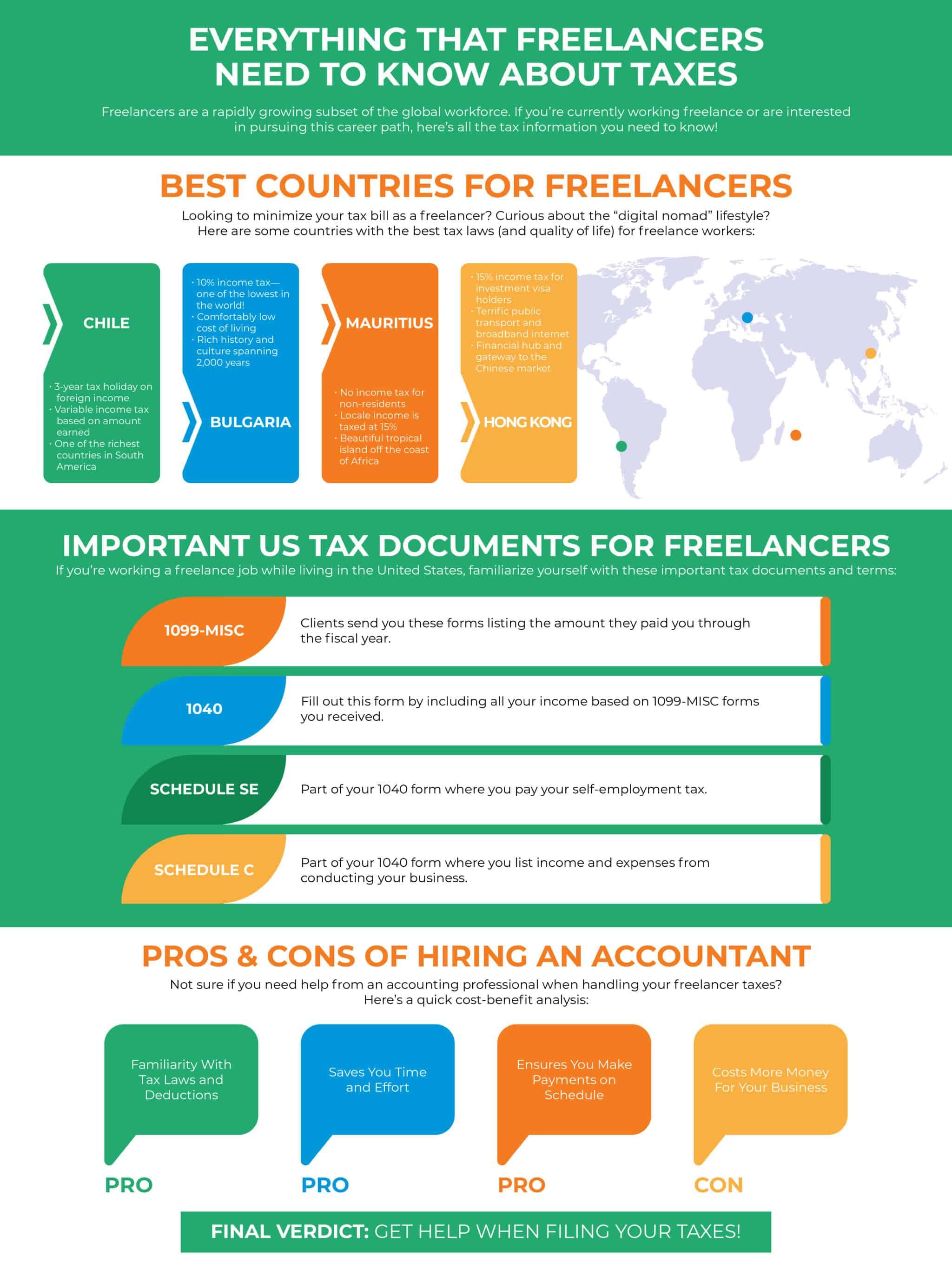
Freelance Taxes and Accounting
For freelancers, mastering taxes and accounting is crucial for financial health and peace of mind. Unlike traditional employees, freelancers are responsible for managing their own tax obligations, which can often feel overwhelming. It’s essential to keep track of your income, expenses, and deductions throughout the year. Consider implementing an organized system using tools like spreadsheets or accounting software to simplify your process. Here are a few items to keep in mind:
- Income Tracking: Maintain a record of all payments received from clients.
- Expense Logging: Document all business-related expenses, such as materials, subscriptions, and travel.
- Tax Deductions: Familiarize yourself with deductible expenses to maximize tax savings.
- Estimated Taxes: Make quarterly estimated tax payments to avoid penalties.
Tax preparation can feel like navigating a complex puzzle, especially when juggling multiple clients and different income streams. A solid understanding of your tax bracket and the implications of your earnings will enable you to plan better and prepare for upcoming payments. Utilizing a professional accountant or tax advisor can also provide valuable insights and help you manage your documents effectively. Consider creating a simple overview of your financial situation, as outlined in the table below:
| Category | Amount | Notes |
|---|---|---|
| Total Income | $X,XXX | Sum of payments from all clients |
| Total Expenses | $X,XXX | Include all deductible expenses |
| Net Income | $X,XXX | Income after expenses |

Freelance Client Retention
Building long-term relationships with clients is crucial for freelancers aiming to create a sustainable business. To enhance client retention, focus on delivering exceptional results consistently and maintaining open lines of communication. Here are some effective strategies:
- Regular Check-ins: Stay engaged with clients through periodic updates or calls to discuss project progress.
- Personalized Experience: Tailor your services to meet the unique needs and preferences of each client.
- Value-Added Service: Offer insights or additional services that can benefit your clients, reinforcing your role as an essential partner.
Furthermore, effective management of your freelance finances can significantly impact client satisfaction. By keeping your invoices clear and timely, you demonstrate professionalism. Consider the following elements in your invoicing process:
| Element | Description |
|---|---|
| Itemized Invoice | Break down services provided and costs for transparent communication. |
| Payment Terms | Clearly state when payments are due to avoid misunderstandings. |
| Follow-Up Reminders | Send gentle reminders as deadlines approach to enhance cash flow. |

Freelancing Full-Time vs Part-Time
Choosing between freelancing full-time and part-time involves navigating varying levels of commitment, income potential, and work-life balance. On one hand, full-time freelancers often experience greater income stability and the ability to pursue larger projects, while also facing the pressures of self-employment, such as securing consistent work and managing all aspects of their business. On the other hand, part-time freelancing allows for flexibility, enabling individuals to maintain other commitments, whether those are traditional employment or personal projects. This approach can serve as a testing ground to gauge market demand and personal interest in a particular field before diving in full-time.
Understanding the financial implications of your freelancing choice is essential. Here’s a quick comparison of common considerations:
| Aspect | Full-Time Freelancing | Part-Time Freelancing |
|---|---|---|
| Income Stability | Generally more stable with recurring clients | Income can be irregular and dependent on availability |
| Time Commitment | 40+ hours a week | Varies based on available time |
| Business Management | Responsible for all aspects | May have less pressure, can share focus |
| Tax Implications | More complex with higher income | May have simpler tax obligations |
Regardless of the path chosen, it’s crucial to adapt your accounting practices accordingly. Full-time freelancers may need robust accounting software and strategies to handle consistent invoicing and track expenses, while part-time freelancers might benefit from a simpler approach, focusing on essential financial records to manage their side hustle effectively. Ultimately, the choice hinges on individual lifestyle, goals, and financial aspirations.

Freelance Job Boards
Finding the right gig in the vast world of freelancing often begins with exploring various . These platforms can be your lifeline, connecting you with clients seeking your specific expertise. Here are some popular job boards to consider in your quest for freelance opportunities:
- Upwork: A well-known marketplace offering a wide range of freelance categories.
- Freelancer: Great for competitive bidding on projects and building your portfolio.
- Fiverr: A platform that allows you to offer services starting at $5, making it accessible for newcomers.
- Guru: Offers a flexible approach with a workroom feature for collaboration.
- Toptal: Focused on connecting clients with top-tier freelancers in tech and design.
To effectively manage your freelance journey, consider the following aspects when using job boards:
| Aspect | Importance | Tips |
|---|---|---|
| Profile Visibility | High | Complete your profile with a professional image and detailed descriptions. |
| Client Communication | Essential | Maintain clear, timely communication to build trust and rapport. |
| Bidding Strategy | Critical | Research before bidding and be competitive yet realistic with your rates. |
| Time Management | Vital | Set deadlines and prioritize tasks to meet client expectations. |

Freelance Branding Strategies
In today’s competitive freelance landscape, establishing a memorable brand is crucial for setting yourself apart from the crowd. Start by defining your unique value proposition—what makes your services different and why clients should choose you over others. This can be achieved through a consistent visual identity, which includes your logo, color palette, and typography, as well as a well-crafted portfolio that showcases your best work. Remember, your branding should communicate your personality and professionalism, so choose elements that resonate with your target audience.
Additionally, leverage social media platforms to enhance your branding strategy. Create cohesive profiles across platforms like LinkedIn, Instagram, and Twitter that reflect your brand’s identity. Regularly engage with your audience by sharing insights, tips, and updates related to your freelancing niche. Here are some key tactics to implement:
- Utilize a consistent tone of voice in all communications.
- Share testimonials and case studies to build credibility.
- Network with other professionals to create synergistic partnerships.

Freelancing in Graphic Design
Entering the world of freelance graphic design is like stepping into a vibrant canvas where creativity knows no bounds. However, even the most imaginative designers must grapple with the practicalities of managing finances and taxes. Freelancers often find themselves wearing multiple hats, not just as artists but as business owners. Therefore, understanding how to navigate the complexities of tax obligations is paramount. Consider the following essentials:
- Separate Business Accounts: Establishing a dedicated business bank account helps keep personal and business finances distinct, simplifying tracking and reporting.
- Invoicing Tools: Utilize software that generates professional invoices and keeps records of payments, making it easier to calculate income for tax purposes.
- Deductions: Familiarize yourself with allowable deductions, such as software expenses, home office space, and client-related travel costs.
In addition to understanding these fundamentals, knowing key deadlines and tax structures is crucial. For instance, freelancers typically pay estimated taxes quarterly, which require careful forecasting of income. This proactive approach can mitigate surprises during tax season. Below is a simple overview of potential tax obligations:
| Tax Type | Frequency | Notes |
|---|---|---|
| Federal Income Tax | Quarterly | Based on estimated annual income. |
| Self-Employment Tax | Quarterly | Contributes to Social Security and Medicare. |
| State Income Tax | Varies | Depends on your state’s regulations. |

Freelance Personal Development
Embracing the freelance lifestyle brings a sense of freedom and limitless potential, but it also comes with its own set of challenges, particularly when it comes to managing taxes and accounting. Understanding your financial landscape is crucial. As a freelancer, you wear many hats, and developing a robust financial plan is one of the most critical steps to success. Here are some essential practices to incorporate into your routine:
- Track Your Income: Keep a detailed record of all your earnings from different clients and projects.
- Separate Your Finances: Consider opening a dedicated bank account for your freelance work, helping in easier tracking.
- Stay Informed: Tax laws can vary by location, and keeping up-to-date with local regulations can save you from future headaches.
Another essential part of managing your finances as a freelancer is understanding potential deductions you can claim. The costs associated with running your freelance business can quickly add up, and identifying these expenses can greatly reduce your taxable income. Consider the following common deductions:
| Deduction Category | Description |
|---|---|
| Home Office | If you work from home, you may qualify for a portion of your rent or mortgage. |
| Supplies and Equipment | Items such as computers, software, and office supplies are often deductible. |
| Travel Expenses | Business-related travel costs, including transportation and lodging, can be subtracted. |
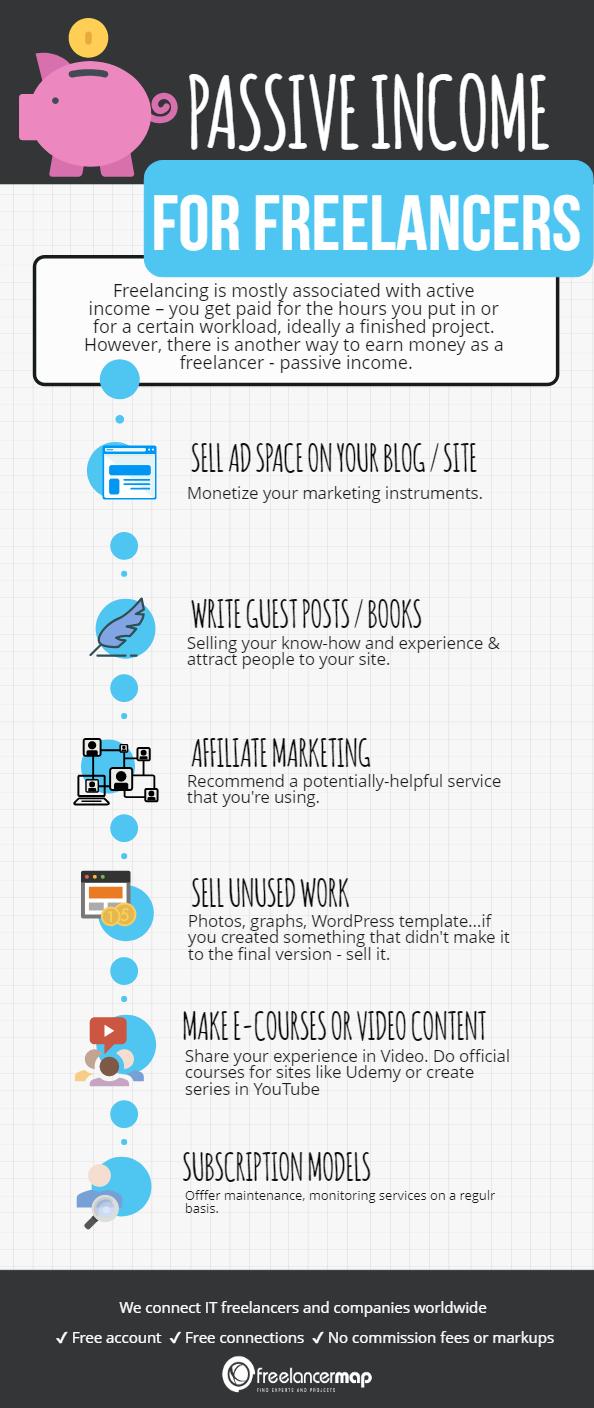
Freelance Income Diversification
Diversifying your income as a freelancer can be a game-changer, allowing you to build a buffer against market fluctuations and unexpected expenses. By tapping into various revenue streams, you can not only enhance your financial stability but also expand your skill set. Here are some effective strategies for diversification:
- Offer complementary services: If you’re a graphic designer, consider adding web design or social media management to your repertoire.
- Create passive income: Develop online courses or eBooks that can generate income over time without continuous effort.
- Join affiliate programs: Promote products related to your niche and earn commissions on sales through your referrals.
- Engage in collaborations: Partner with other freelancers to offer bundled services that attract a wider audience.
Another compelling way to generate diverse income is by utilizing platforms that cater to multiple niches. For instance, if you write articles or blogs, consider freelance platforms that connect you with clients in different industries. Below is a simple table showcasing various platforms along with their niches:
| Platform | Niche |
|---|---|
| Upwork | General Freelance |
| 99designs | Graphic Design |
| Udemy | Online Courses |
| Fiverr | Various Services |
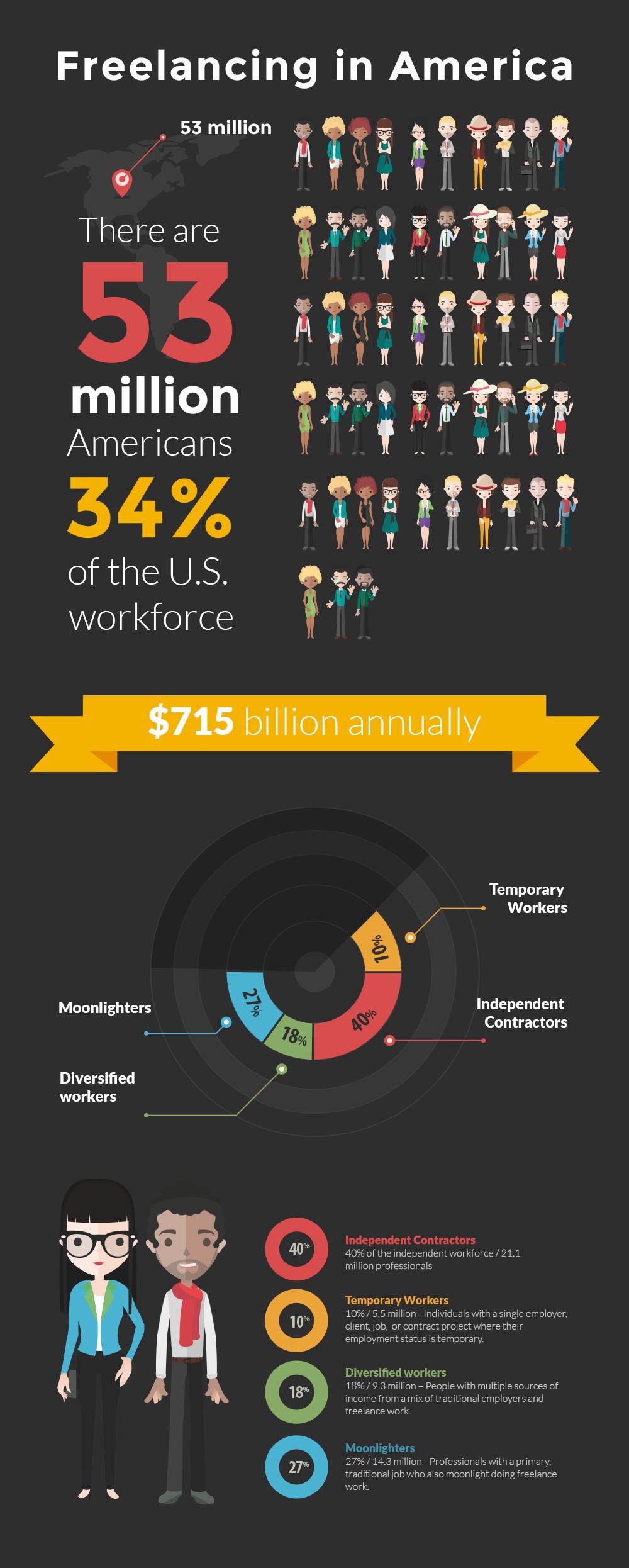
Freelance Career Growth
Building a successful freelance career is much like navigating a complex maze, where each turn presents new challenges, especially when it comes to managing taxes and accounting. Understanding the financial aspects of your freelance work is crucial for long-term growth. By establishing a solid financial foundation, freelancers can focus on honing their craft and developing their client base. Consider these essential strategies:
- Maintain meticulous records of your income and expenses to simplify tax filing.
- Set aside a percentage of your earnings specifically for taxes to avoid last-minute scrambles.
- Invest in accounting software or consult with a professional to streamline your financial processes.
Moreover, as your freelance career grows, it’s vital to stay informed about changing tax laws and potential deductions available to you. Expanding your knowledge not only empowers you but also enhances your financial management skills. To illustrate some common deductions freelancers can utilize, here’s a succinct overview:
| Deductions | Description |
|---|---|
| Home Office | Costs associated with using a portion of your home for business. |
| Equipment | Expenses for computers, software, and other necessary tools. |
| Education | Courses or materials meant to improve your skills in your field. |

Freelance Market Trends 2024
The freelance landscape in 2024 is witnessing significant transformations, driven by technology and shifting work patterns. With more professionals choosing this route, the demand for niche skills has never been higher. Freelancers now find themselves specializing in various fields such as digital marketing, graphic design, software development, and content creation. As this diversification continues, freelancers must stay updated with current market needs and trends to effectively position themselves and stand out in a competitive marketplace.
As the number of freelancers grows, so does the complexity of managing their finances. Understanding the intricacies of tax obligations and accounting practices is crucial. Many freelancers are leveraging technology with the aid of accounting software and apps that streamline invoicing and expense tracking. Here are some key aspects to consider:
- Quarterly Tax Payments: Many freelancers need to pay estimated taxes quarterly, requiring careful budgeting.
- Deductible Expenses: Common deductions include home office expenses, equipment, and software subscriptions.
- Tracking Income: Using reliable invoices and record-keeping can simplify end-of-year tax filing.
| Tax Season Considerations | Best Practices |
|---|---|
| Stay Organized | Utilize spreadsheets or accounting software. |
| Consult Professionals | Consider hiring an accountant familiar with freelance taxes. |
| Educate Yourself | Keep up with tax law changes that impact freelancers. |
In Retrospect
As we reach the end of our journey through the intricate labyrinth of freelance taxes and accounting, it’s essential to remember that while the path may seem daunting, it is navigable with the right tools and knowledge. By understanding the nuances of tax obligations, embracing good financial practices, and staying organized, freelancers can transform what often feels like a financial quagmire into a well-structured plan.
Whether you’re a seasoned pro or just starting out, taking the time to educate yourself on these matters will not only alleviate stress but also empower you to focus on what you truly love—your craft. So, equip yourself with resources, seek professional guidance when needed, and always keep an eye on the road ahead. In this ever-evolving world of freelancing, the more informed you are, the better positioned you will be to thrive. Happy navigating!


